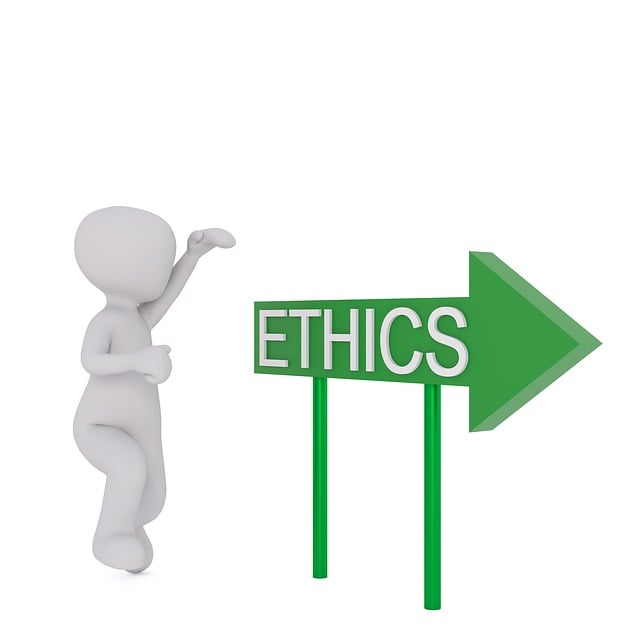From the basics, ethics is having a sense of what is right and wrong, evaluating situations, and making smart decisions based upon your personal and/or professional values. The same set of ethics can be applied to both personal and professional situations but not necessarily need to be.
As you might have a different set of values for your personal life as compared to those you have as an employee, manager, or owner.
Personal ethics are often a set of beliefs specific to an individual and based upon experience, family, and community. For instance, you may hold strong beliefs about responsibility, loyalty, respect, and integrity.
Therefore, business ethics, also referred to as professional ethics, are a set of moral guidelines that influence how a company serves its customers and treats its employees and is often based upon the personal ethics of the company’s owner or manager. Every industry and individual business has its own ethical conduct that affects its organizational procedures and systems.
Business ethics is an important practice in the corporate world today, It changes how businesses and organizations operate and also influences legislation around corporate regulation. Businesses have an obligation to conduct themselves professionally to best serve their customers and employees.
Operating by a list of ethical standards helps businesses navigate challenges, provide exceptional service and retain quality employees.
Table of Contents
Some Ethical Behaviors in the Workplace
It is important to understand the basic principles of business ethics, but it is definitely more important to understand how to apply ethical behavior in businesses. Examples of business ethics include:
Transparency
Transparency and clear communication are paramount when it comes to ethical behavior in the workplace. Employees and consumers should not lie or make false statements as they damage the trust in the company.
For instance, if a company is going through some crisis, they need to call a meeting to discuss the issue directly with their employees.
It is important, to be honest about the developing situation, offer solutions, and humbly accept criticism.
Recommendation: Best way To Make Modern Decision in Business
Accountability
Ethical businesses accept responsibility for all decisions made as a company and admit their mistakes to all of those who may be affected by a misstep including shareholders, employees, and the public.
In addition to being accountable, they also accept any consequences that result and do so openly and willingly.
Prioritizing work diversity
Part of fairness is to give everyone equal opportunities to be employed by the company. There is much political debate about how to create fairness in the workplace, but it is undeniable that providing equal employment and promotion opportunities for all applicants is an ethical standard.
This introduces different perspectives into the hiring process and increases the likelihood that different types of applicants will be selected for positions.
Respect customer information
Many companies collect personal information about their customers, regardless of payment or health information. The protection of this information should be a priority for any business.
For instance, hospitals may develop and implement proactive policies for employees who share patient information on social media.
Sharing this type of information with personal accounts not only compromises patient privacy but also risks hospitals violating strict regulations, this also goes for financial institutions and other such organizations.
Providing resources for reporting unethical behavior
When employees become aware of unethical behavior in the workplace, they need a way to report such behaviors. The company is responsible for setting up this infrastructure and designing it to protect its employees from harm.
Some Unethical Behaviours in the Workplace include taking sides in an employee argument, misusing company time and resources, cultivating a hostile workplace, ignoring conflicts of interest, lying e.t.c.
Reputation upholding
an ethical company seeks to maintain and protect a positive reputation to build a motivating work culture, keep investors engaged and provide exceptional service to customers which keep them coming. Upholding a good reputation means engaging in conduct that uplifts the company.
If any action is taken to undermine a company’s reputation, leaders need to handle the situation appropriately utilizing other ethical standards such as transparency, accountability, and responsibility.
Providing excellence
Ethical organizations strive to provide excellence by always working to deliver the greatest quality of service or products to their clients and customers.
They pursue creativity and innovation, look for the best ways to deliver their goods, and seek to constantly improve their performance, customer satisfaction, and employee morale.
Companies that value quality over excessive profit will not only retain customers but attract referrals due to the excellent services that they provide. No one enjoys dealing with companies who provide substandard goods/services.
Fairness
Companies should strive to act fairly and commit to exercising their power justly. Leaders should only use honorable methods to gain an advantage over the competition. Also, fairness relates to equality, which means having an open mind and treating everyone fairly.
Fairness and equality can be involved in hiring practices, marketing initiatives, business partnerships, and competing within the market for new consumers or clients.
Lawfulness
Business ethics also include abiding by legal regulations and obligations regarding their business activities like taxes, worker safety, and employment and labor laws.
Companies that work within the boundaries of the legal system are more credible and honorable, which can establish a strong positive reputation as a company that encourages high-quality applicants to apply for positions.
Conclusion
Indeed, ethical conduct in business provides benefits for both business owners and consumers as it builds trust between companies and consumers. It ensures more financial support from shareholders because investors always want to work with morally sound and legally abiding companies.
Businesses that show compassion always attract more top talent because candidates look for companies they feel will appreciate and value their contributions to the company and act in their employees’ best interests as employees tend to perform a whole lot better when they feel they are a part of the company and can improve the work produced by bringing in more committed candidates and reducing employee turnover.
Another reason why business ethics is important is that it can improve profitability as well-implemented ethics can also reduce losses in businesses that adhere to their ethical standards.


